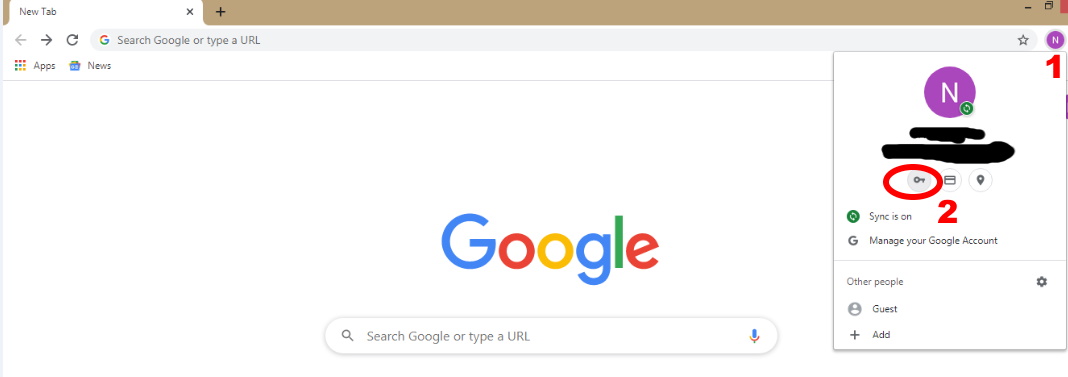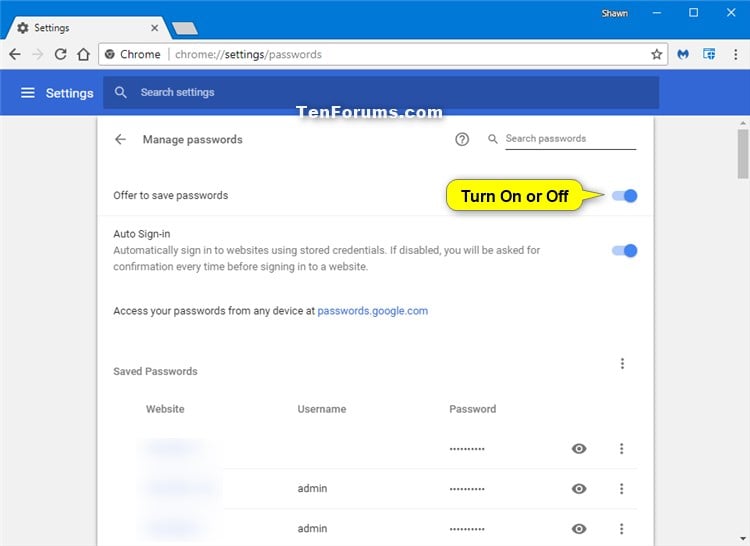

Wilson is an advocate of the movement to kill off passwords, an effort to ditch passwords entirely in favour of two-factor authentication. I don’t think that a big internet company can just disclaim all responsibility for passwords when they provide a tool like this, and they don’t provide any other meaningful option.” “They have got to have some sort of responsibility for usability and utility of tools they give people to secure themselves with. He said while Google’s end user terms and conditions were “understandable and predictable”, they weren’t fair and reasonable from a trade practices point of view. There’s an implied level of computer sophistication that isn’t realistic,” he said.

“It’s not reasonable that people don't know this is what their browser is doing.
See google saved passwords password#
Wilson said it was not good enough that both Google and Mozilla were effectively saying users forfeit their right to have a password remain secure when saving it. I didn’t know they were as visible as this.” “This shines a light on the issue that passwords when stored locally are supposed to be salted or hashed so they are invisible. “Sh*t a brick,” he said when shown the feature on his Firefox browser. Managing director of Lockstep Group Stephen Wilson had been unaware of the issue and said it was a big security concern for online browsers. The issue has received intermittent low-level coverage over the years but is not widely known. “We decided that while disallowing 'show password' would prevent casual snooping, it wasn't an honest protection of your data and would provide a false sense of security - even if we didn't have the feature, your locally-stored passwords are accessible to anyone who has access to your computer anyway - they can either just look at your disk, or run some JS (JavaScript) on a page with an autofilled password.” We make these options clear to users on Mozilla's Support Site."Ī Google spokesperson pointed iTnews to a comment on Quora by Google Chrome design lead Glen Murphy, who said: “For those with greater security concerns, Firefox can protect sensitive information such as saved passwords and certificates by encrypting them using a master password. “The default option is to lightly obfuscate these passwords so they are recoverable if you forget them and this option may be preferred by some who do not share their desktop computer,” the spokesperson said. Firefox users can select to 'remove all' saved passwords from the list.Ī Mozilla spokesperson told iTnews the company offered two options for storing passwords. Once in the password manager, Chrome users can select to un-save the passwords and therefore remove them from plain text display. The passwords save within both browsers when a user selects to “remember” (Firefox) or “save” (Chrome) a password upon entering it into a website.

Hitting the ‘Show Passwords’ button will ask the user if they are sure they want to show the passwords selecting ‘yes’ will reveal the passwords in plain text.įirefox does offer a master password to secure the saved passwords, Google does not. Mozilla’s Firefox offers a similar route to access saved passwords.īy clicking on the ‘Firefox’ tab on the top left of the browser, selecting ‘Options’, then ‘Options’ again, clicking the ‘Security’ tab, then the ‘Saved Passwords’ button, users are then shown a box with saved passwords. Google is not the only browser maker storing passwords in such a way.


 0 kommentar(er)
0 kommentar(er)
